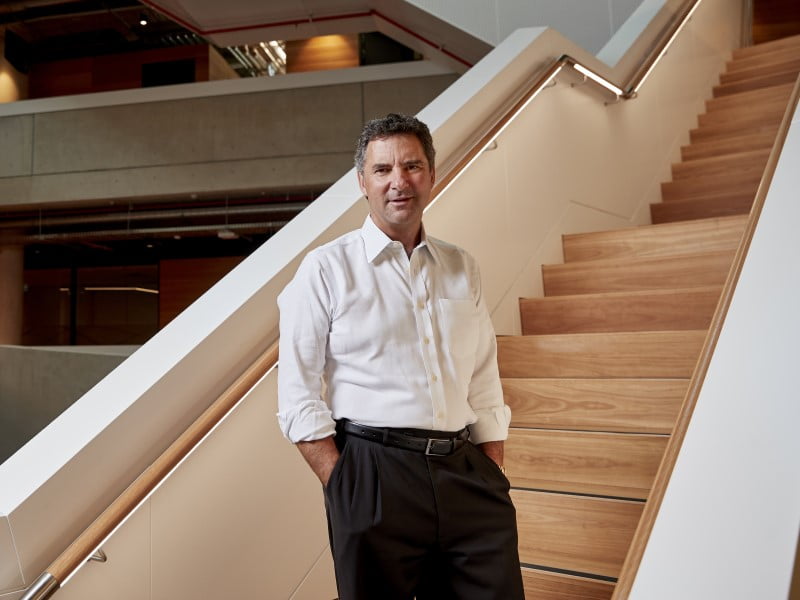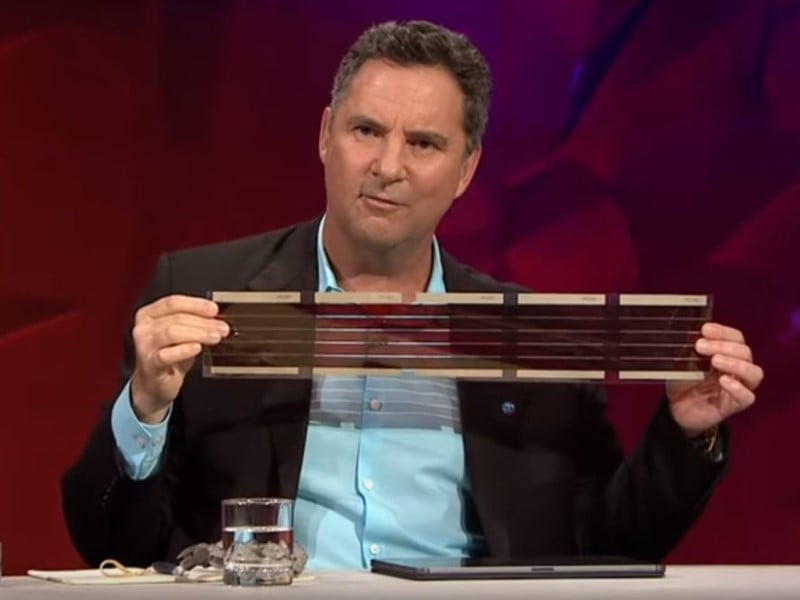Dr Larry Marshall will depart the CSIRO at the end of June 2023 as the national science agency’s longest serving chief executive in 50 years, leaving the organisation in a position he “couldn’t be prouder of”.
Throughout his eight years in the role, Dr Marshall has overseen several changes, namely a cultural shift away from organisational silos driven by his CSIRO Strategy 2020 innovation plan.
He also led the creation of CSIRO’s innovation fund, Main Sequence Ventures, and helped develop the CSIRO ON program, a national science accelerator which has supported 3,314 researchers across 52 research organisations.
Other programs under Dr Marshall include CSIRO Missions, which facilitated collaboration between research agencies, universities, industry, government and communities on national problems, and $425 million in aspirational research investment through Future Science Platforms.

Dr Marshall, who first took up the role in 2015, was reappointed as CSIRO chief executive in mid-2020 but had begun considering life beyond the research organisation.
“A lot of people tried to recruit me as a CEO during COVID, and there’s no way I was going to leave CSIRO in the middle of that, but those things sort of started me thinking,” Dr Marshall told InnovationAus.com.
“When the board originally offered me a five-year term, I said three years is probably more appropriate because that’ll get us through COVID and, if there’s a change of government, get us well established, and it just felt like the right time to go. So it’s been on my mind for a while.”
He added that the announcement feels bittersweet, as if he’s “leaving [his] family behind”, likening it to 1988 when he migrated to the United States for nearly 30 years, largely spent in Silicon Valley.
Choosing not to speculate on successors, Dr Marshall said it would be “a sign of a really healthy organisation” if the new chief executive is appointed from within CSIRO.
Minister for Industry and Science Ed Husic thanked Dr Marshall for his work at CSIRO.
“Dr Marshall has steered CSIRO through a rapidly changing scientific environment. A period of much scientific promise amid global turbulence, particularly through the COVID pandemic,” Mr Husic said in a statement.
“Undoubtedly, he will leave the organisation with a lasting legacy and I thank him for his dedicated service.”
Structural changes through Strategy 2020 initially faced resistance, particularly early forecasts of a net jobs loss of around 275.
The cuts hit climate and marine scientists the hardest. It also prompted former Industry, Innovation, and Science minister Greg Hunt to order CSIRO to hire 15 new climate scientists.
When asked by InnovationAus.com if he felt exonerated now that the Albanese government has placed a renewed focus on technology, science, and innovation, Dr Marshall said “change is really hard”.
The CSIRO staff union has criticised some of the organisational changes, saying some have led to redundancies. The agency was also criticised for dumping the world-leading Trustworthy Systems security research team last year, and continues to be dogged by criticism of its industry funding model that sees fossil fuel companies funding some of CSIROs environmental research. It has been accused of failing to disclose the links, while a recent controversial government appointment to the agency’s board also looms over the CSIRO.
“When I came in, CSIRO was very hierarchical, kind of like a government department and it’s very far from that culture now. In the beginning, I was sharing ideas and people were looking at me like I was crazy,” he said.
“Now they’re stopping me in the corridors and sharing their ideas, and they feel comfortable doing so.”
He said that CSIRO feels the closest it has ever been to the idea of a ‘One-CSIRO’ culture, a strategic objective first outlined in 2000-2001 to break down internal barriers to “both horizontal and vertical communication and collective effort”.
Pleased with the progress CSIRO has made, Dr Marshall said he is probably worrying more about the rest of the [innovation] system, including how industry and universities are going to “reinvent” themselves.
“It doesn’t quite feel like One Australia yet, but it feels like we’re on that journey, which is really encouraging for the future Team Australia,” he said.

In particular, Dr Marshall said Australia still faces an innovation dilemma meaning “we think invention is innovation”, leading to many local discoveries being commercialised in other countries, with little benefit to Australia.
He reiterated his belief that Australia needs to do more than great science and the inventions need to be used to create jobs for future generations.
CSIRO chair Kathryn Fagg praised Dr Marshall’s focus on science and technology innovation.
“Dr Marshall has led CSIRO to deliver significant scientific breakthroughs, translate its research into real world solutions and deliver a staggering benefit for our nation – eight times the investment,” Ms Fagg said.
“Today’s CSIRO is the most connected research organisation in Australia, collaborating with every university and helping thousands of small and large industry partners to bring science to the centre of creating a better future.”
Do you know more? Contact James Riley via Email.

